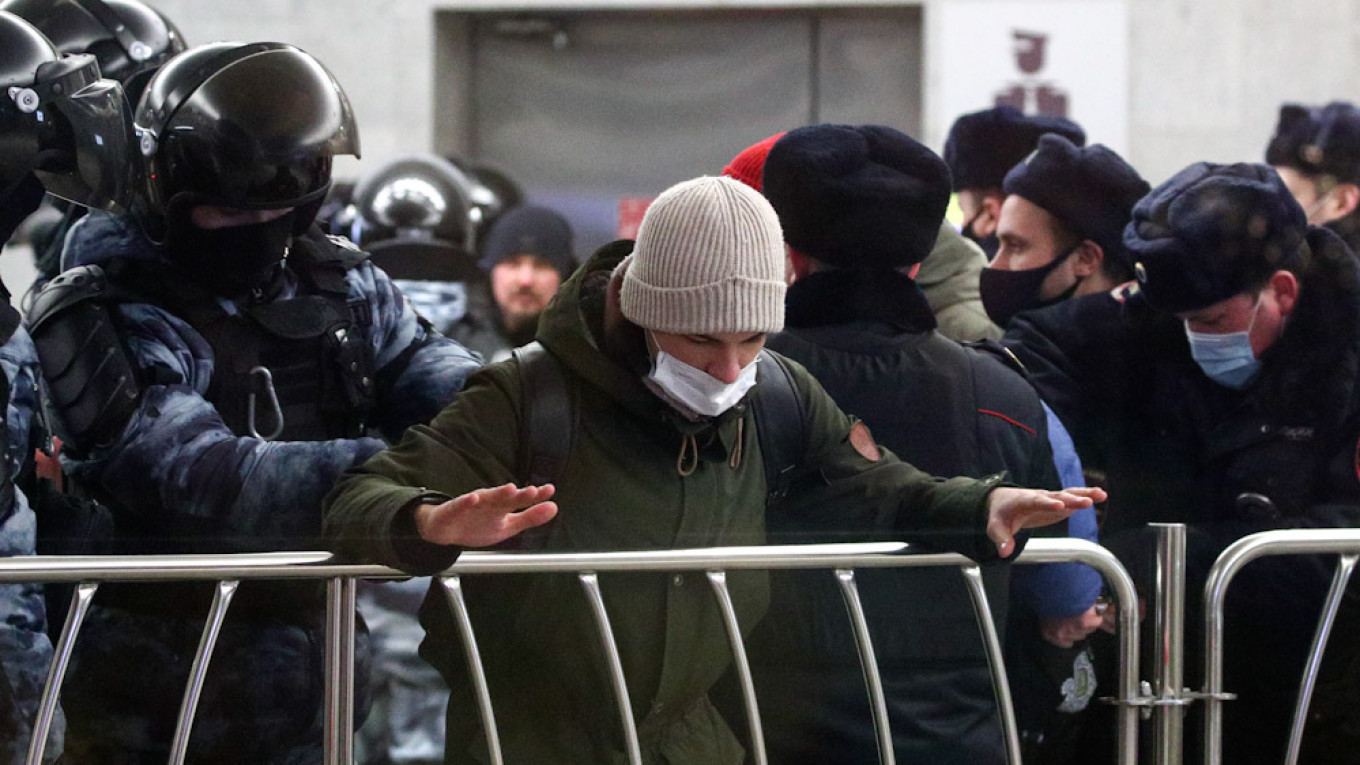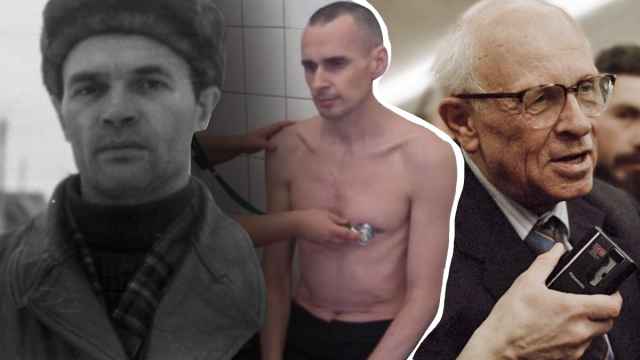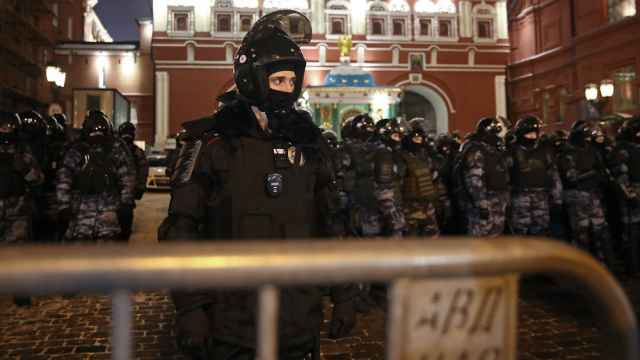There has been “no repression” against Russians detained while protesting in support of jailed Kremlin critic Alexei Navalny, the Kremlin said Thursday amid mounting criticism of the harsh law enforcement tactics used against peaceful demonstrators.
Independent monitors estimate that more than 10,000 people and dozens of journalists have been detained nationwide during the protests on Jan. 23, Jan. 31 and Feb. 2 that called for Navalny's release and criticized President Vladimir Putin. Videos showing riot police officers beating protesters with truncheons and shocking them with tasers sparked widespread outcry.
“There is no repression whatsoever. There are police measures against those who break the law,” Kremlin spokesman Dmitry Peskov told journalists on a conference call, according to the Kommersant business daily.
Russian protest law requires any demonstration larger than one person to be authorized by the government in advance. The recent opposition protests have been unauthorized, a fact the authorities have used to justify the crackdown and discourage people from gathering.
“Some participated and were detained during these actions voluntarily, others were the victims of instigators who spread calls [to protest],” Peskov said, referring to Navalny allies who have been charged with inciting people to attend unauthorized rallies.
“There is no repression; I don't agree with such emotional assessments. You forget that during the actions there were direct and multiple attacks on officers. The response was tough, but in line with the law,” Kommersant quoted Peskov as saying.
Navalny's allies called on Russians to take to the streets after he was detained last month upon returning from Germany where he had been recovering from nerve agent poisoning he blames on Putin. The Kremlin denies that he was poisoned.
A Message from The Moscow Times:
Dear readers,
We are facing unprecedented challenges. Russia's Prosecutor General's Office has designated The Moscow Times as an "undesirable" organization, criminalizing our work and putting our staff at risk of prosecution. This follows our earlier unjust labeling as a "foreign agent."
These actions are direct attempts to silence independent journalism in Russia. The authorities claim our work "discredits the decisions of the Russian leadership." We see things differently: we strive to provide accurate, unbiased reporting on Russia.
We, the journalists of The Moscow Times, refuse to be silenced. But to continue our work, we need your help.
Your support, no matter how small, makes a world of difference. If you can, please support us monthly starting from just $2. It's quick to set up, and every contribution makes a significant impact.
By supporting The Moscow Times, you're defending open, independent journalism in the face of repression. Thank you for standing with us.
Remind me later.






